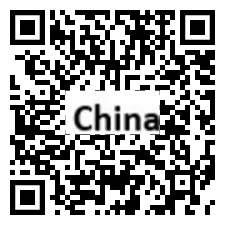Introduction
Background
China's civilization dates from at least 1200 B.C.. From the 3rd century B.C. and for the next two millennia, China alternated between periods of unity and disunity under a succession of imperial dynasties. After World War II, the Chinese Communist Party under MAO Zedong established an autocratic socialist system.
Geography
Area
total: 9,596,960 sq km
land: 9,326,410 sq km
water: 270,550 sq km
Climate
extremely diverse; tropical in south to subarctic in north
Natural resources
coal, iron ore, helium, petroleum, natural gas, arsenic, bismuth, cobalt, cadmium, ferrosilicon, gallium, germanium, hafnium, indium, lithium, mercury, tantalum, tellurium, tin, titanium, tungsten, antimony, manganese, magnesium, molybdenum, selenium, strontium, vanadium, magnetite, aluminum, lead, zinc, rare earth elements, uranium, hydropower potential (world's largest), arable land
People and Society
Population
1,413,142,846 (2023 est.)
Ethnic groups
Han Chinese 91.1%, ethnic minorities 8.9% (includes Zhang, Hui, Manchu, Uighur, Miao, Yi, Tujia, Tibetan, Mongol, Dong, Buyei, Yao, Bai, Korean, Hani, Li, Kazakh, Dai, and other nationalities) (2021 est.)
Languages
Standard Chinese or Mandarin (official; Putonghua, based on the Beijing dialect), Yue (Cantonese), Wu (Shanghainese), Minbei (Fuzhou), Minnan (Hokkien-Taiwanese), Xiang, Gan, Hakka dialects, minority languages (see Ethnic groups entry); note - Zhuang is official in Guangxi Zhuang, Yue is official in Guangdong, Mongolian is official in Nei Mongol, Uyghur is official in Xinjiang Uygur, Kyrgyz is official in Xinjiang Uyghur, and Tibetan is official in Xizang (Tibet)
Religions
folk religion 21.9%, Buddhist 18.2%, Christian 5.1%, Muslim 1.8%, Hindu < 0.1%, Jewish < 0.1%, other 0.7% (includes Daoist (Taoist)), unaffiliated 52.1% (2021 est.)
Population growth rate
0.18% (2023 est.)
Government
Government type
communist party-led state
Capital
name: Beijing
Executive branch
chief of state: President XI Jinping (since 14 March 2013); Vice President HAN Zheng (since 10 March 2023)
head of government: Premier LI Qiang (since 11 March 2023)
Legislative branch
description: unicameral National People's Congress (NPC) or Quanguo Renmin Daibiao Dahui (maximum of 3,000 seats; members indirectly elected by municipal, regional, and provincial people's congresses, and the People's Liberation Army; members serve 5-year terms); note - in practice, only members of the Chinese Communist Party (CCP), its 8 allied independent parties, and CCP-approved independent candidates are elected
Economy
Economic overview
one of the world’s top two economies; sustained growth due to export relations, its manufacturing sector, and low-wage workers; only major economy to avoid COVID-19 economic decline; recovery efforts slowing due to longstanding poverty imbalances and other institutional issues; state-sponsored economic controls
Real GDP (purchasing power parity)
$24.861 trillion (2021 est.)
$22.996 trillion (2020 est.)
$22.493 trillion (2019 est.)
Real GDP per capita
$17,600 (2021 est.)
$16,300 (2020 est.)
$16,000 (2019 est.)
Agricultural products
maize, rice, vegetables, wheat, sugar cane, potatoes, cucumbers, tomatoes, watermelons, sweet potatoes
Industries
world leader in gross value of industrial output; mining and ore processing, iron, steel, aluminum, and other metals, coal; machine building; armaments; textiles and apparel; petroleum; cement; chemicals; fertilizer; consumer products (including footwear, toys, and electronics); food processing; transportation equipment, including automobiles, railcars and locomotives, ships, aircraft; telecommunications equipment, commercial space launch vehicles, satellites
Remittances
0.13% of GDP (2021 est.)
0.13% of GDP (2020 est.)
0.13% of GDP (2019 est.)
Exports
$3.554 trillion (2021 est.)
$2.739 trillion (2020 est.)
$2.631 trillion (2019 est.)
Exports - partners
United States 17%, Hong Kong 10%, Japan 6% (2019)
Exports - commodities
broadcasting equipment, computers, integrated circuits, office machinery and parts, telephones (2021)
Imports
$3.091 trillion (2021 est.)
$2.38 trillion (2020 est.)
$2.499 trillion (2019 est.)
Imports - partners
South Korea 9%, Japan 8%, Australia 7%, Germany 7%, US 7%, Taiwan 6% (2019)
Imports - commodities
crude petroleum, integrated circuits, iron, natural gas, cars, gold (2019)
Exchange rates
Renminbi yuan (RMB) per US dollar -
Exchange rates:
6.449 (2021 est.)
6.901 (2020 est.)
6.908 (2019 est.)
6.616 (2018 est.)
6.759 (2017 est.)
Page last updated: Tuesday, December 19, 2023
